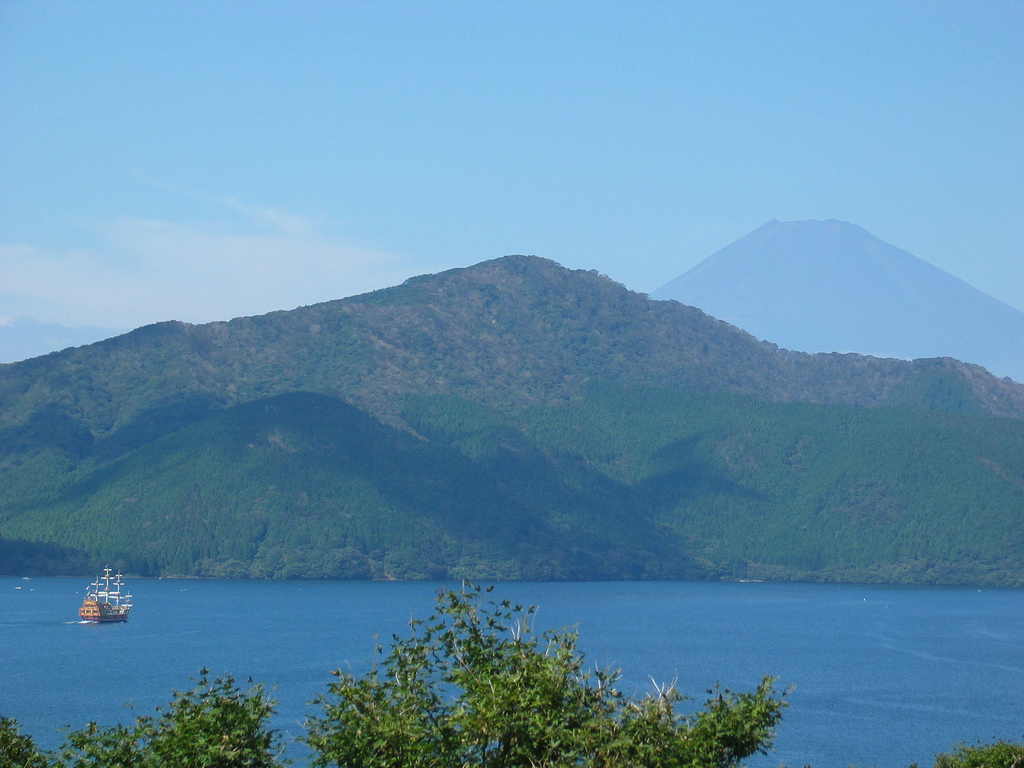
Beautiful Mt. Fuji
Mt. Fuji is the most recent addition to the UNESCO World Cultural Heritage sites in Japan, receiving the title in the spring of 2013 after a decade of preparation and applications. The snow-capped, symmetrical peak is one of the archetypal images of the country, and has inspired artists in all media for generations. Most famous are Katsushika Hokusai’s “36 Views of Mt. Fuji” woodblock prints, which established the mountain’s image as a staple of oriental art.
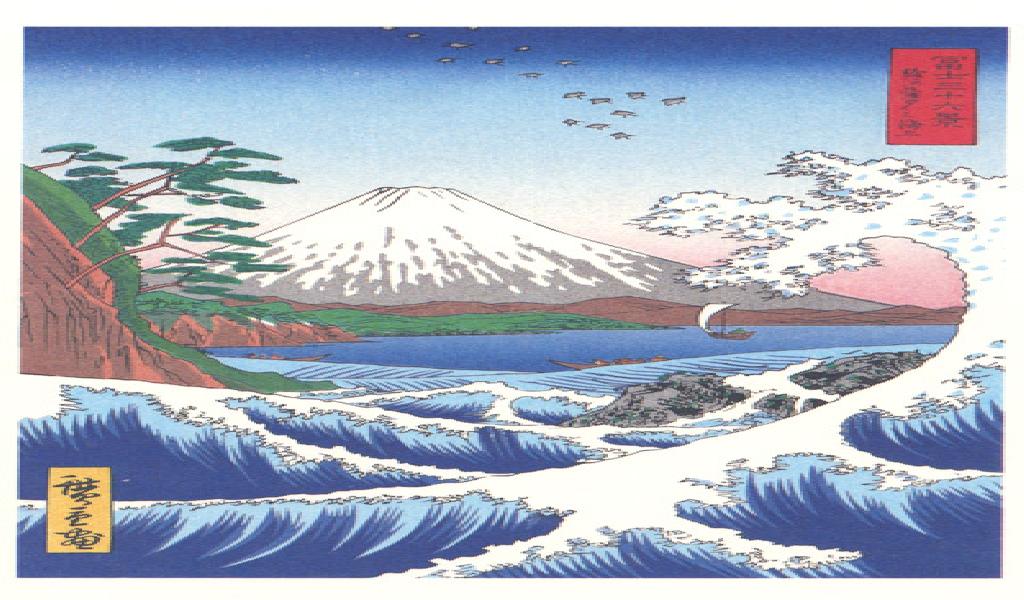
Ukiyoe “The 36 Views of Mt.Fuji” series by Hiroshige
Mt . Fuji has been integrated in Shinto and Buddhist worship for centuries, and each year about 300,000 visitors climb to the top in July and August to experience the magical views for themselves. It is considered especially meaningful to watch the sun rise from the peak. The climb can be done without special equipment, and there are multiple rest stops along the way. There is even a mailbox at the very top. Temperatures can change dramatically, so if you are considering a trip, bring many layers of clothing and sturdy walking shoes.
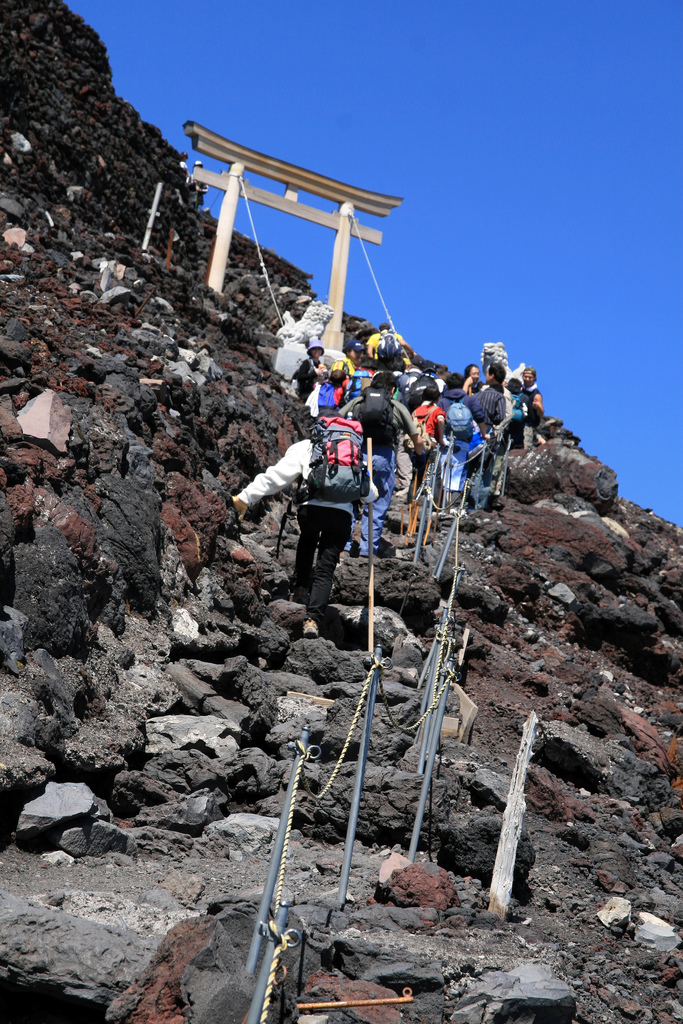
Climbing Mount Fuji!
Fuji-san is the correct name in Japanese, though the suffix “san” means “mountain” and not “honored person” as many foreigners are led to believe. It is the highest mountain in Japan at 3776 meters (12,380 feet). Currently dormant, the last volcanic activity was in 1707, though seismic activity is not uncommon and there are hot springs in the area, indicating that it is not extinct.
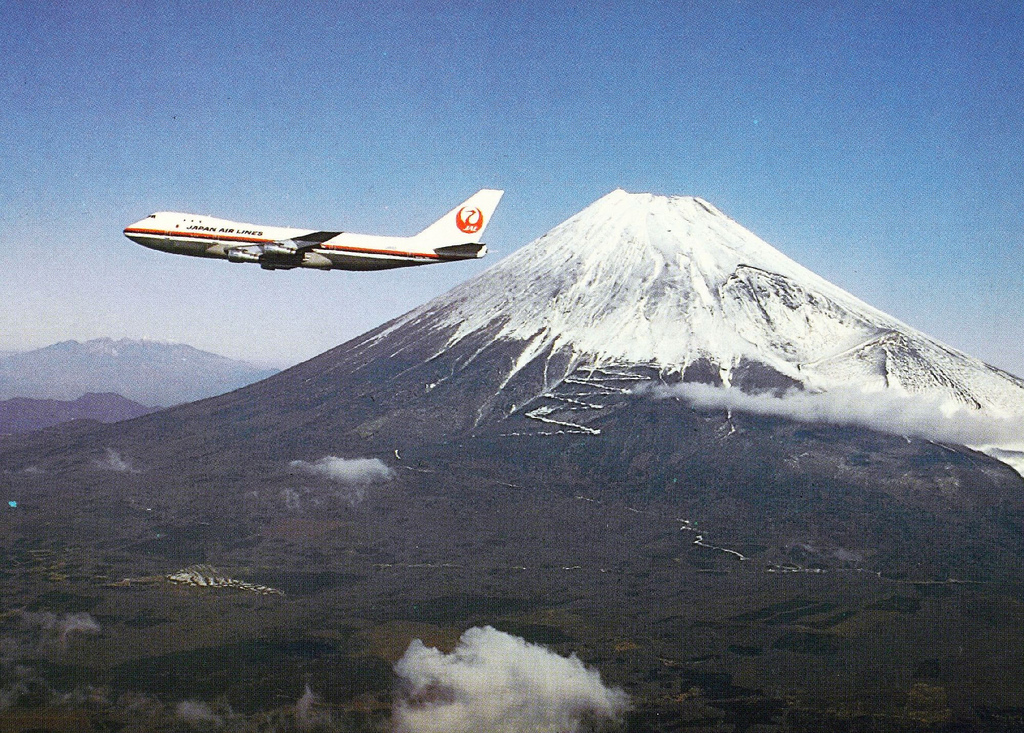
Boeing 747 flies by Mount Fuji
Mt. Fuji spans the border of Shizuoka and Yamanishi Prefectures, which regularly hold friendly competitions to say that the view from their side is best. The visitor on a day trip should plan to visit the 5th station on the Yoshida Trail, which is open most of the year.
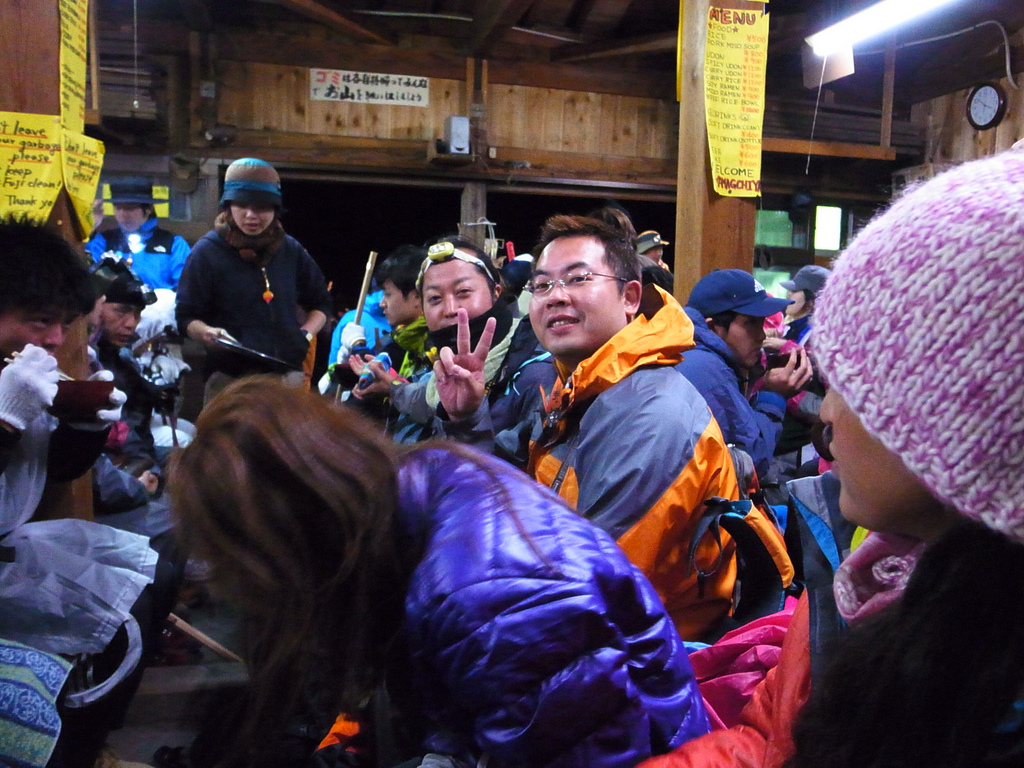
胸突江戸屋, 富士山登山(吉田ルート) Climb Mt.Fuji(Yoshida Trail)
JTB Sunrise Tours offers some very good tours that range from a day trip to Mr. Fuji to a multi-day itinerary that includes Mt. Fuji as one of the destinations.
An overview of Mt. Fuji in English is: http://www.jnto.go.jp/eng/indepth/scenic/mtfuji/fuji_01.html